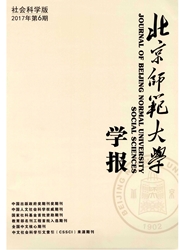

 中文摘要:
中文摘要:
大学治理与大学管理在目标、导向、主体、客体、实施基础、实施手段、层级结构、沟通方向、政府作用和资金结构等方面都存在显著区别。两者还存在着三个时空边界:时间边界、规模边界和制度边界,正确认识和确定两者的边界具有重要的实践意义。从时间边界看,大学管理产生的时间远早于大学治理,并非所有大学都需要建立大学治理结构;从规模边界看,大学规模很小时,管理职能占主导地位,随着大学规模的逐步扩大,治理职能越来越重要,逐步替代管理职能;从制度边界看,大学治理的基本前提是大学利益主体的多元化以及所有权与管理权的分离。能否有效实施大学治理需要具备一定的制度环境,在制度环境不具备的条件下,盲目推行大学治理会事倍功半。
 英文摘要:
英文摘要:
University governance is a series of system arrangement that coordinates the interrelations of every stakeholder in order to reduce the agency cost and increase the running benefit in the condition of the diversification of stake bodies and the separation of the ownership and management. University management is a dynamic and creative activity in which the managers,on specific conditions, make the allocation of all the resources to the organization, the allocation that should be optimized by such behavior activities as planning, organizing, commanding, coordinating and controlling,so as to achieve the objectives efficiently. There are remarkable differences between these two concepts in objective, orientation, the subject and object, implement foundation and means, hierarchical structure, communication direction, government function, fund structure and so on. They also have three space--time boundaries:time, scope,and system. From the time boundary, university management precedes much earlier than the occurrence of university governance; in fact, not all management needs governance. From the perspective of scope boundary, the management function plays a dominant role when the scope of university is small; but the governance function becomes important with the increasing expansion of its scale,and it will gradually replace the management function. From the system boundary, the premise of university governance is the diversification of stake bodies and the separation of ownership and management. Howeverm efficient governance demands certain policy environment, with which the efficacy would be very much reduced.
 同期刊论文项目
同期刊论文项目
 同项目期刊论文
同项目期刊论文
 期刊信息
期刊信息
